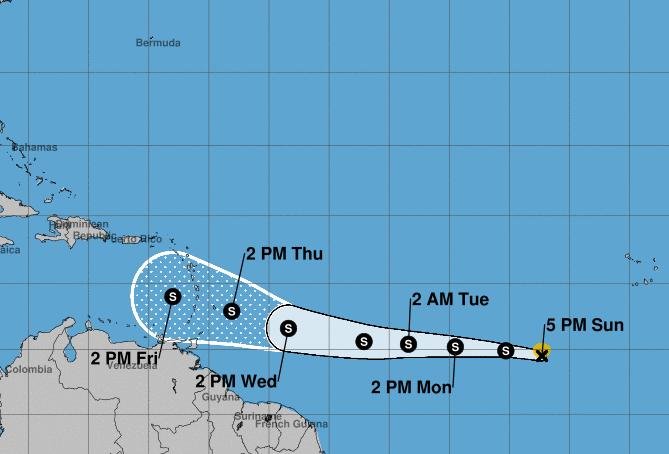Sept. 23 (UPI) -- Tropical Storm Kirk was accelerating westward over the eastern tropical Atlantic as Subtropical Storm Leslie formed Sunday, the National Hurricane Center said.
Kirk, which became a named storm Saturday, was moving westward 23 mph at 40 mph and was 645 miles southwest of the southernmost Cabo Verde Islands, the NHC said in its 5 p.m. advisory.















